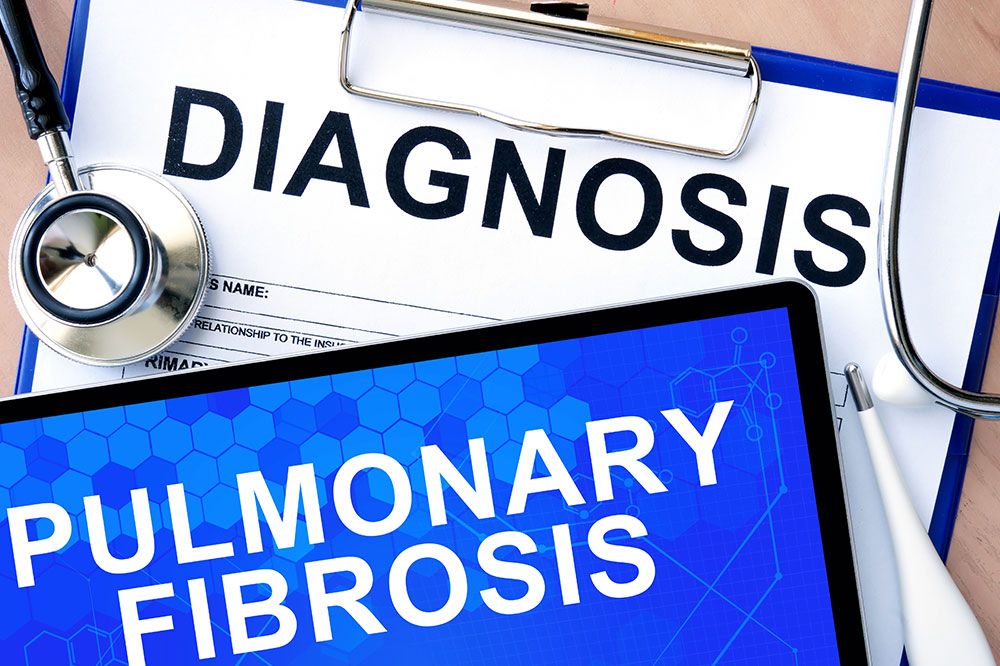Pulmonary fibrosis – symptoms, food, and treatment options

Pulmonary fibrosis affects the respiratory system. It causes the lung tissues to thicken and scar over time. Hardened lung tissues don’t expand as they should, making breathing difficult. Pulmonary fibrosis affects tiny delicate air sacs in the lungs called alveoli that help in getting oxygen into the bloodstream. This is a progressive disease that has no permanent cure. Read to know the symptoms, nutrition guidelines, and medication options to manage this condition.
Symptoms
Pulmonary fibrosis symptoms are similar to easily treatable conditions such as common cold or upper respiratory infections. Common symptoms include shortness of breath, long-term dry cough, muscle and joint ache, extreme tiredness or fatigue, and unexplained loss of weight. Clubbing may occur as the disease progresses, wherein the fingertips or toes appear wider and rounder. Cyanosis is another symptom where the skin becomes blue (in fair-skinned people), gray or white (in dark-skinned people) around the mouth or eyes due to lack of oxygen in the blood. The severity of the symptoms varies from person to person. Some may experience severe symptoms, also known as acute exacerbation, that could last for weeks or months. These individuals may need a mechanical ventilator to breathe.
Nutrition guidelines
Individuals diagnosed with pulmonary fibrosis should eat foods that are rich in antioxidants since they help in combating free radicals. Foods rich in antioxidants include all types of leafy greens, sweet potatoes, broccoli, carrots, tomatoes, squash, garlic, herbs, spices, citrus, mangoes, cherries, melon, all types of berries, cocoa, and green tea. Include lean protein like fish, grass-fed meat, and poultry as well. Make sure these foods are cooked properly since bacteria can damage the already weak immune system. Consume omega-3 fatty acids from salmon, sardine, flax, and hemp seeds. Also, add probiotic foods like yogurt. Drink a good amount of water daily since hydration will decrease fatigue and shortness of breath. You can also drink vegetable juices or herbal tea.
Medications
Doctors may recommend a nutrition plan along with medication to treat pulmonary fibrosis. There are two FDA-approved medicines. ESBRIET® (pirfenidone) is used to treat idiopathic pulmonary fibrosis (IPF). It contains anti-inflammatory, antioxidant, and anti-fibrotic properties that improve the function of the lungs and reduce the severity of the disease. ESBRIET® is ingested orally with food typically three times a day, but it’s best to follow the doctor’s advice for dosage instructions. Another medicine your doctor may prescribe is OFEV® (nintedanib). This is used for the treatment of IPF, chronic interstitial lung disease, and to slow the progression of systemic sclerosis-associated interstitial lung disease (SSc-ILD).